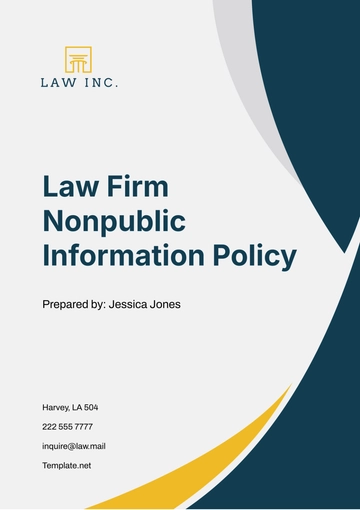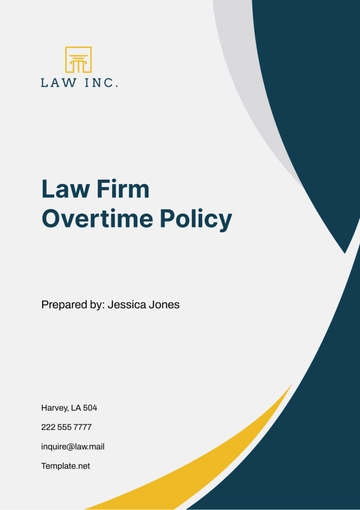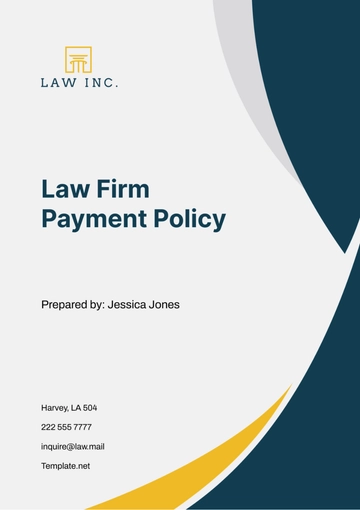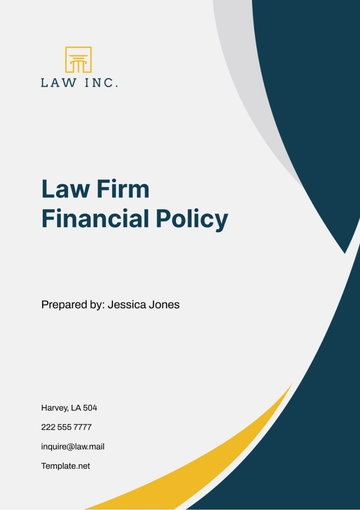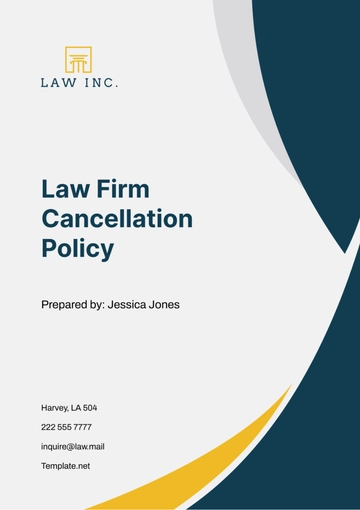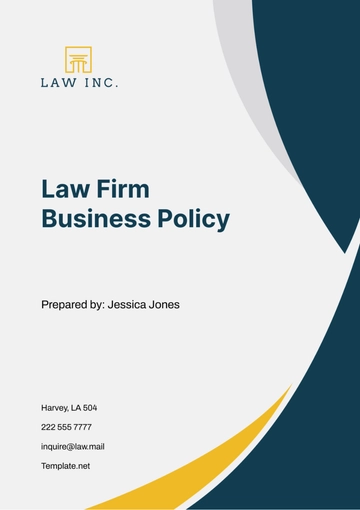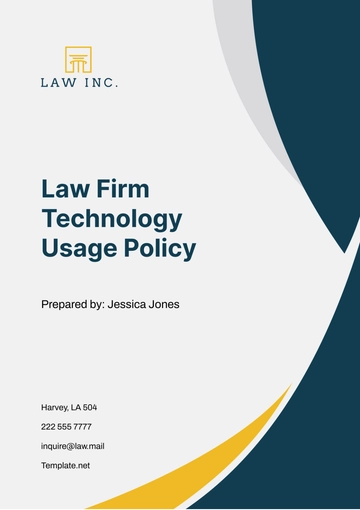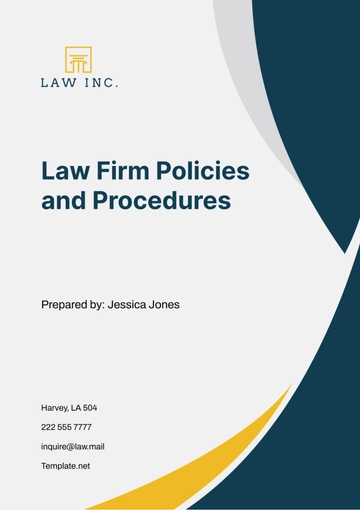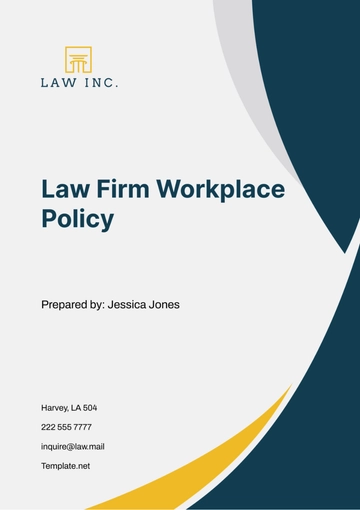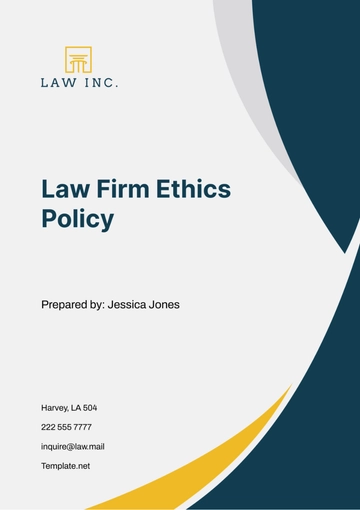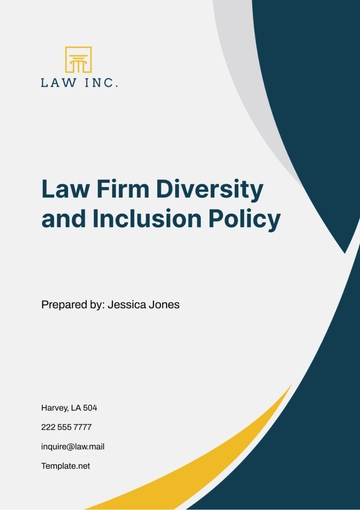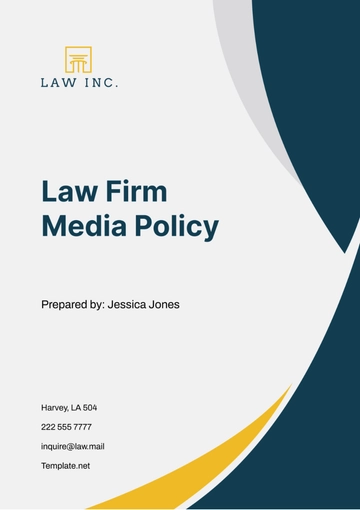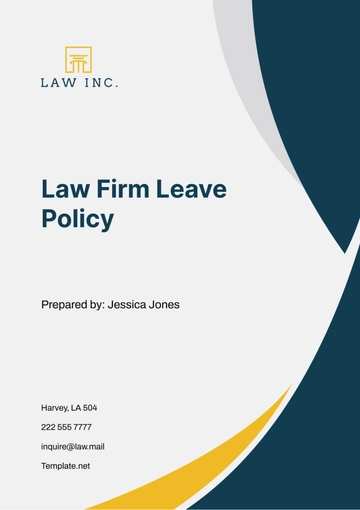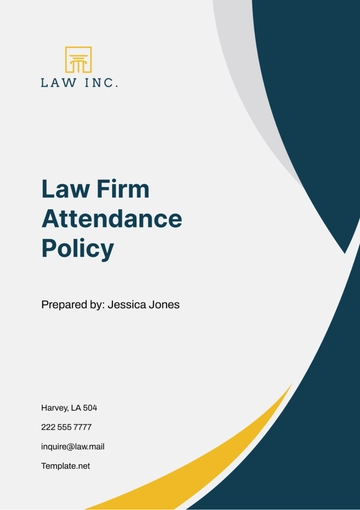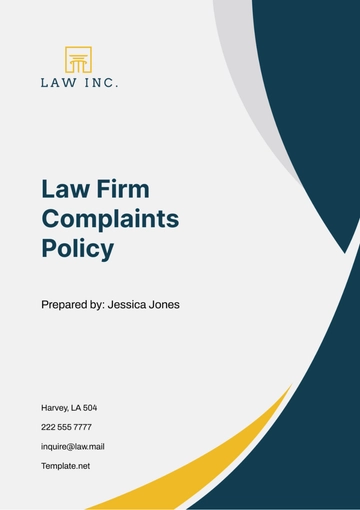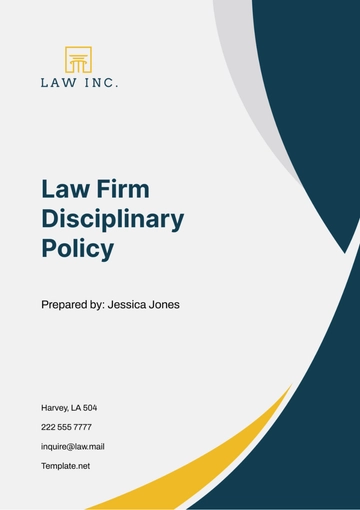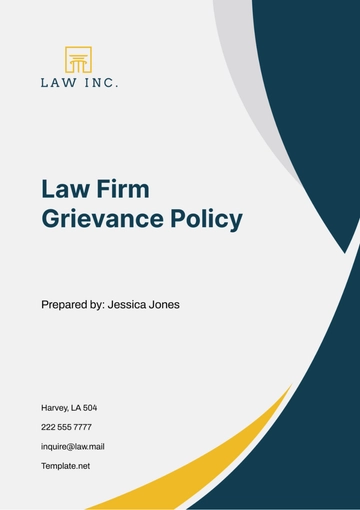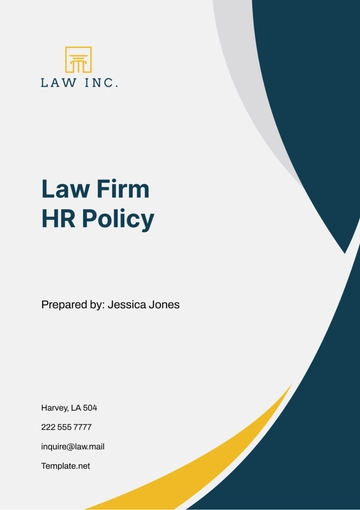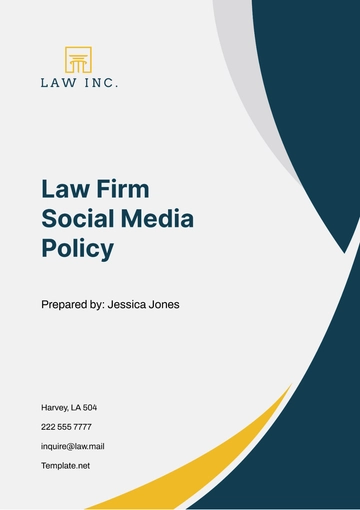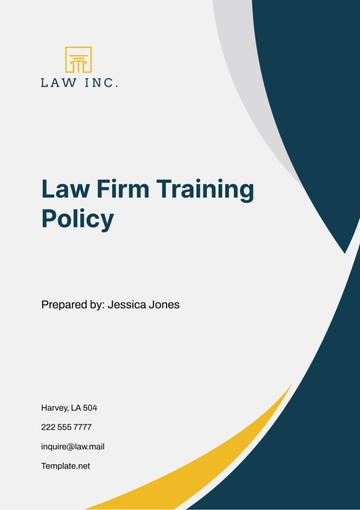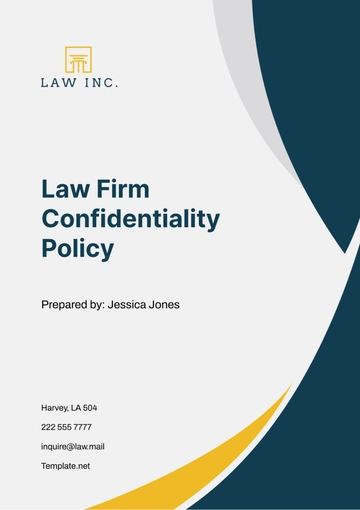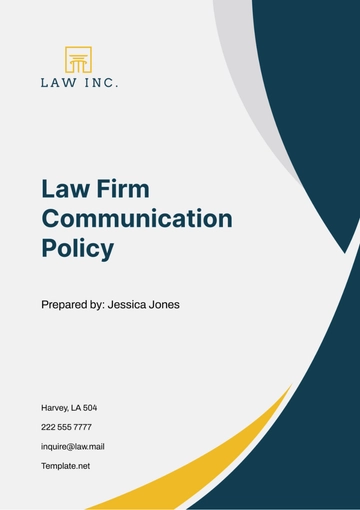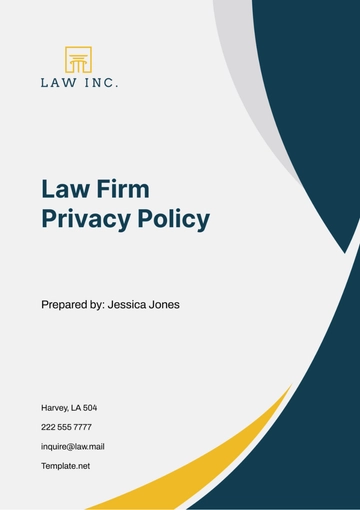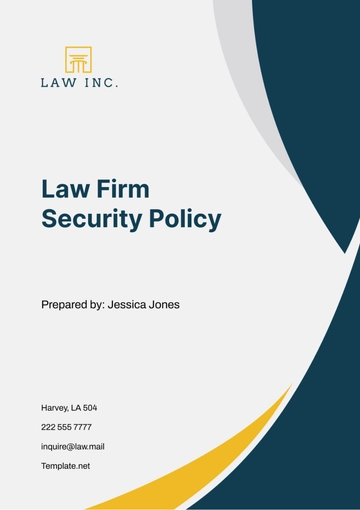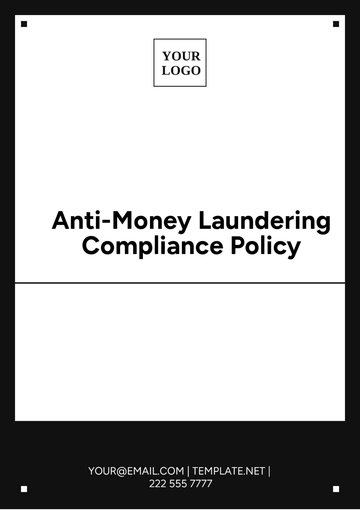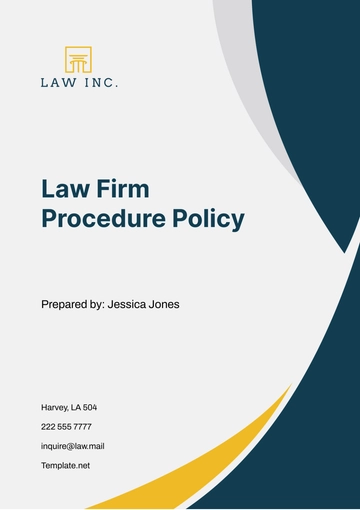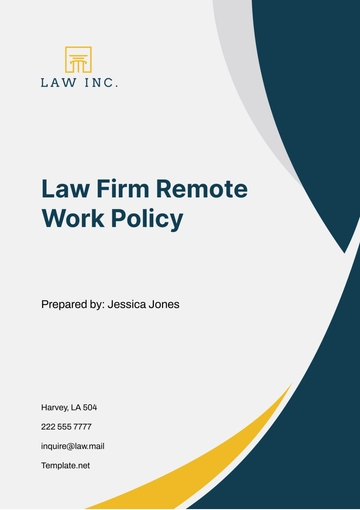Free Law Firm Disciplinary Policy
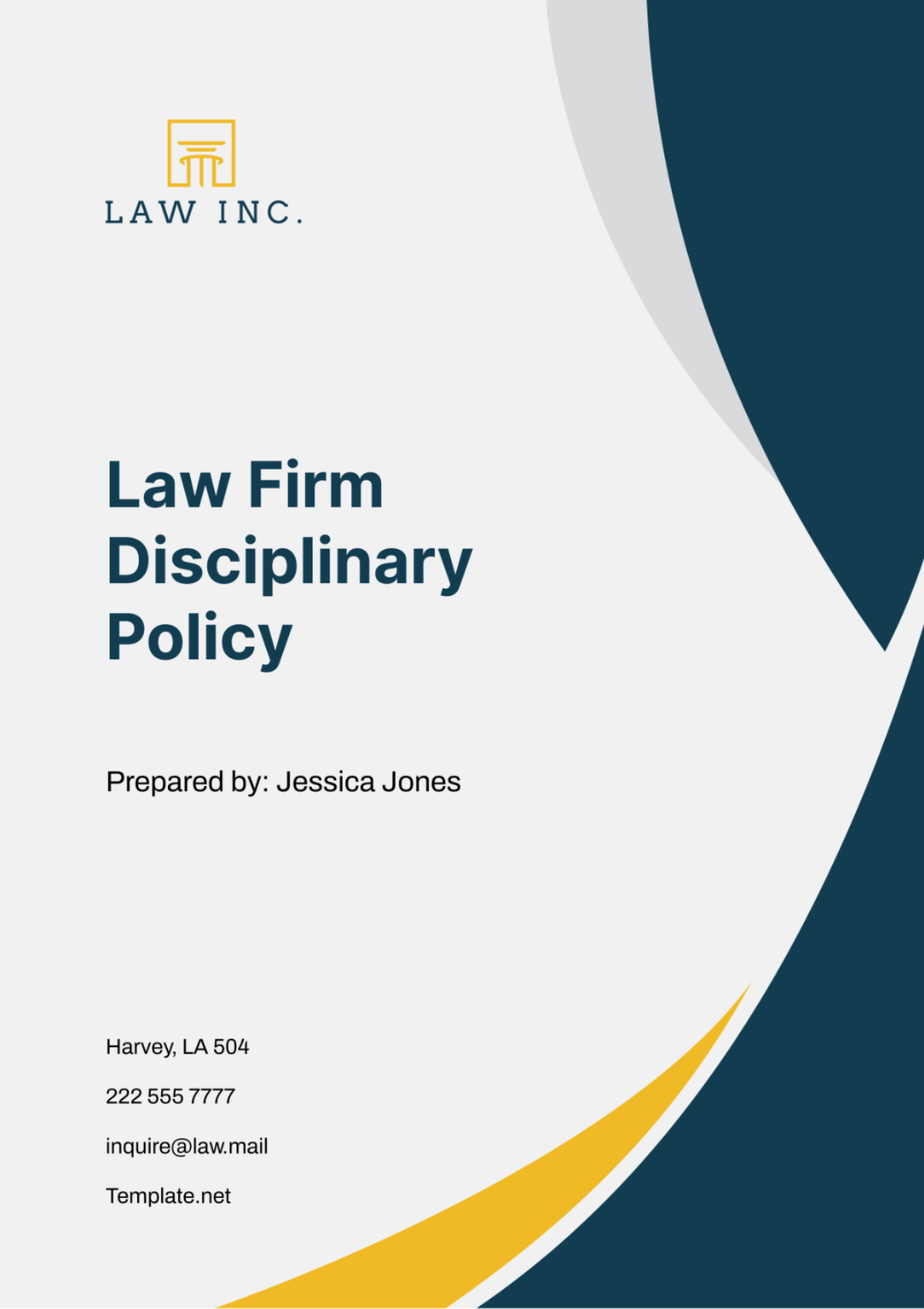
A. Purpose and Scope
The disciplinary policy of [Your Company Name] serves as a foundational framework designed to foster professionalism, safeguard the esteemed reputation of our firm, and uphold the highest standards of ethical conduct and legal compliance. It applies universally to all individuals affiliated with [Your Company Name], including attorneys, paralegals, support staff, clients, and external contractors. This policy sets forth clear expectations for behavior and serves as a guiding beacon to ensure that every member of our community operates with integrity, respect, and accountability in all interactions, both within the firm and in engagements with clients and external stakeholders.
At [Your Company Name], we recognize that adherence to ethical principles and legal standards is paramount to the success and sustainability of our practice. Therefore, this disciplinary policy outlines the parameters within which all members of our firm are expected to operate, promoting a culture of transparency, fairness, and mutual respect. By establishing clear guidelines and expectations, we aim to cultivate an environment where trust thrives, conflicts are resolved promptly and equitably, and the reputation of our firm remains unwaveringly upheld in the eyes of our clients and the broader legal community.
B. Standards of Conduct
At [Your Company Name], we hold ourselves to the highest standards of conduct, reflecting our commitment to integrity, respect, and diligence in all aspects of our work. Our expectations encompass a broad spectrum of behaviors essential to maintaining the trust and confidence of our clients and upholding the integrity of the legal profession. These standards include, but are not limited to:
Adherence to confidentiality
Avoidance of conflicts of interest
Compliance with all applicable laws and regulations
Ethical billing practices
Responsible use of firm resources
C. Disciplinary Procedures
In the event of a potential violation of our standards of conduct, [Your Company Name] is committed to conducting fair and thorough disciplinary procedures to uphold accountability and maintain the integrity of our firm. Our process ensures transparency and affords all parties involved the opportunity to address allegations and seek resolution through established channels. The disciplinary procedures consist of the following steps:

Report of potential violation: Any individual within the firm or external party may report a potential violation of our standards of conduct to the appropriate authority within the firm, such as a supervisor or designated ethics officer.
Initiation of thorough investigation: Upon receipt of a report, the firm will promptly initiate a thorough and impartial investigation to gather relevant facts and evidence regarding the alleged violation.
Notification of accused individual: The individual accused of misconduct will be promptly notified of the allegations against them and provided with an opportunity to respond to the accusations.
Opportunity for accused to respond: The accused individual will have a reasonable opportunity to present their perspective, provide additional information, and address any concerns raised during the investigation process.
Determination of appropriate disciplinary actions: Based on the findings of the investigation and considering all relevant factors, including the severity of the violation and any mitigating circumstances, the firm will determine the appropriate disciplinary actions to be taken.
Right to appeal decisions through specified channels: All parties involved in the disciplinary process, including the accused individual and reporting party, will have the right to appeal decisions made regarding disciplinary actions through specified channels outlined in the firm's policies and procedures. Appeals will be reviewed objectively and impartially to ensure fairness and justice.
D. Types of Disciplinary Actions
In maintaining the integrity of our firm and upholding our standards of conduct, [Your Company Name] recognizes the necessity of implementing disciplinary actions when violations occur. These actions are designed to address misconduct effectively while promoting accountability and facilitating the restoration of trust within our community. The types of disciplinary actions that may be taken include:
Verbal Warning: A verbal warning is an informal acknowledgment of misconduct, typically delivered by a supervisor or manager. It serves as an initial step to address minor infractions and provides an opportunity for corrective action.
Written Warning: A written warning is a formal notice documenting the misconduct and outlining expectations for improvement. It is often issued following repeated violations or in cases where the severity of the infraction warrants written documentation.
Probation: Probation entails placing the individual on a probationary period during which their conduct and performance are closely monitored. This action allows for intensive supervision and support while providing an opportunity for the individual to demonstrate their commitment to meeting expected standards.
Suspension: Suspension involves the temporary removal of the individual from their duties and responsibilities within the firm. It may be imposed as a disciplinary measure for serious infractions or pending the outcome of an investigation.
Demotion: Demotion entails the reassignment of the individual to a lower position or role within the firm as a consequence of their misconduct. It may be implemented when the individual's current position is no longer deemed suitable or appropriate.
Termination: Termination of employment is the severest disciplinary action and involves the permanent separation of the individual from the firm. It is reserved for cases of egregious misconduct or when other disciplinary measures have failed to address the issue adequately.
Restitution: Restitution may be required in cases where the misconduct has resulted in financial loss or harm to the firm or others. It involves the repayment or compensation for damages caused by the individual's actions.
Additionally, severe violations of ethical or legal standards may warrant referrals to relevant authorities or professional bodies for further investigation and potential disciplinary action. These actions are taken to uphold the integrity of the legal profession and ensure compliance with all applicable laws and regulations.
E. Confidentiality and Non-Retaliation
At [Your Company Name], we prioritize the protection of individuals' privacy and the promotion of a safe and supportive environment for reporting misconduct. Our policy emphasizes the importance of confidentiality and prohibits retaliation against those who come forward in good faith to report violations or participate in investigations.
Confidentiality
Maintaining the confidentiality of individuals involved in disciplinary procedures is paramount to safeguarding their privacy and ensuring a fair and impartial process. Our commitment to confidentiality includes:
Privacy Protections: Information related to disciplinary proceedings will be shared only with those individuals directly involved in the investigation or decision-making process.
Limited Disclosure: Disclosure of information regarding disciplinary actions will be restricted to those with a legitimate need to know, such as supervisors, HR personnel, or legal advisors.
Confidential Reporting Channels: We provide confidential channels for reporting misconduct to encourage individuals to come forward without fear of reprisal or breach of privacy.
Non-Retaliation
[Your Company Name] strictly prohibits retaliation against individuals who report misconduct or participate in investigations in good faith. We are committed to fostering an environment where employees feel safe and supported to raise concerns without fear of adverse consequences. Our commitment to non-retaliation includes:
Protection from Adverse Actions: Employees who report misconduct or participate in investigations will not be subjected to adverse employment actions, such as termination, demotion, or harassment, as a result of their actions.
Anonymous Reporting: We offer anonymous reporting options to further protect individuals from potential retaliation and encourage open communication about ethical concerns.
Training and Awareness: We provide training and resources to educate employees about their rights and responsibilities regarding non-retaliation and to promote a culture of accountability and respect.
F. Recordkeeping
At [Your Company Name], we recognize the importance of maintaining accurate and comprehensive records related to disciplinary actions to ensure legal compliance and promote transparency within our firm. Our recordkeeping practices are designed to securely document all aspects of the disciplinary process, including investigations, decisions, and appeals.
Documentation of Investigations
When a potential violation of our standards of conduct is reported, thorough documentation of the investigation process is essential. This includes gathering relevant facts, interviewing involved parties, and collecting supporting evidence to inform disciplinary decisions.
Documentation of Decisions
Once an investigation is complete, the decisions and actions taken in response to the misconduct are documented in detail. This includes the disciplinary actions imposed, the rationale behind each decision, and any conditions or requirements placed on the individual as part of the disciplinary process.
Documentation of Appeals
If an individual chooses to appeal a disciplinary decision, records of the appeal process and outcomes are meticulously maintained. This ensures transparency and accountability in the review of disciplinary actions and provides a clear record of the steps taken to address the misconduct.
Legal Compliance and Behavioral Monitoring
In addition to serving as a record of individual disciplinary cases, our recordkeeping practices enable us to fulfill legal requirements related to employment law and regulatory compliance. Furthermore, maintaining comprehensive records allows us to monitor behavioral patterns over time, identify trends, and implement proactive measures to address recurring issues within our firm.
G. Training and Communication
At [Your Company Name], we prioritize ongoing education and communication to ensure that all personnel are well-informed about our disciplinary policy and expectations for professional conduct. Our commitment to training and communication includes:
Training Upon Hiring and Annual Refreshers
All personnel, including attorneys, paralegals, and support staff, will receive comprehensive training on our disciplinary policy upon hiring. Additionally, annual refresher training sessions will be conducted to reinforce key concepts and updates to the policy.
Inclusion in Employee Handbooks and Orientation Sessions
Our disciplinary policy will be prominently featured in employee handbooks to serve as a reference guide for all personnel. Additionally, during orientation sessions for new hires, the policy will be thoroughly covered to ensure that individuals understand their rights and responsibilities.
For further inquiries or details about this policy, please contact us anytime at [Your Company Email].
Document crafted by [Your Company Name], dedicated to maintaining the highest standards of professional conduct within the legal industry.
At [Your Company Name], we are committed to fostering a culture of integrity, accountability, and excellence. Through comprehensive training and clear communication, we empower our team members to uphold the values and standards that define our firm's reputation for excellence in the legal industry.
- 100% Customizable, free editor
- Access 1 Million+ Templates, photo’s & graphics
- Download or share as a template
- Click and replace photos, graphics, text, backgrounds
- Resize, crop, AI write & more
- Access advanced editor
Ensure fairness and clarity in workplace management with the Law Firm Disciplinary Policy Template from Template.net. This editable and customizable template outlines the procedures and standards for addressing employee misconduct and performance issues. Editable in our Ai Editor Tool, it's essential for maintaining professional conduct, fostering a positive work environment, and ensuring consistent application of disciplinary measures within your law firm.
You may also like
- HR Policy
- Restaurant Policy
- Company Policy
- Accounting Policies and Procedures
- Website Policy
- Privacy Policy
- Safety Policy
- School Policy
- IT and Software Policy
- Law Firm Policy
- Construction Policy
- Interior Design Policy
- Travel Agency Policy
- Education Academic Policy
- Security Policy
- Real Estate Policy
- Expense Policy
- Software Policy
